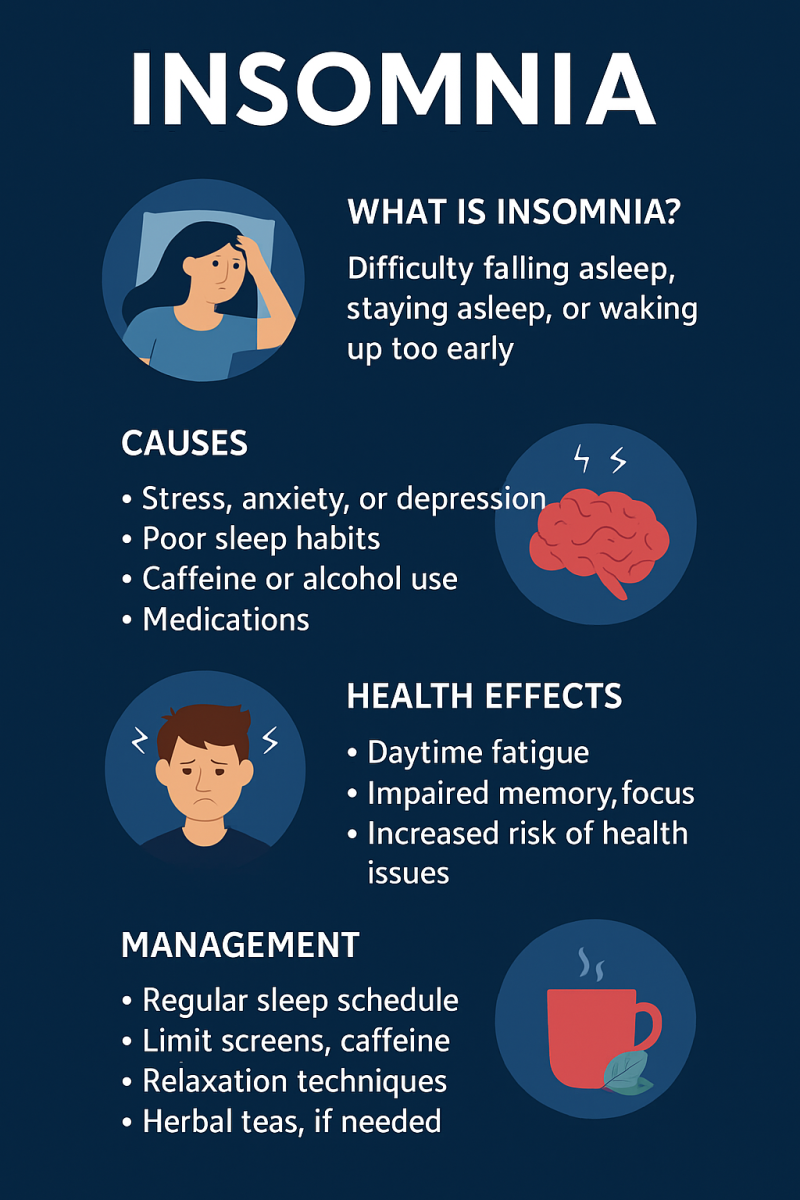Cure Insomnia By Knowing Its Roots

Is There a 100% Working Method to Cure Insomnia?
Yes, there is. But let me ask you first. Do you know what insomnia is? Do you know it by your own experience? Night insomnia is a painful state, that you can hardly compare to any other kind of pain. But those who never experienced it cannot understand.
People who suffer from insomnia have a sick psyche. Insomnia is one of those poignant illnesses that has to be treated as soon as possible. But how? Drugs do not cure the roots of the problem. What is there to be done?
Questions Are:
- Who suffers from insomnia?
- What are the ways to cure insomnia and what are their weak sides?
- Is there a safe cure from insomnia? What is it?
Have you ever had a white night?
Yes, the statement "sick psyche" may sound like a strict verdict. Nobody likes to admit that their psyche is sick. But that's the way it is.
It is different with different people. With some, there is no sleep at all. With others, there is a desire to fall asleep, but when the light is turned off, it disappears. Some people have headaches, or they are disturbed by different noises or by their own thoughts.
Doctors name many different reasons of insomnia: stress, health problems, natural calamities. And they suggest curing insomnia with the help of drugs. But this doesn't often help. Why? Because insomnia is not an illness, but it is often a symptom. It's a sign of alarm. No drugs can cure the reason. Insomnia will persist, will continue to torture, to tear off from normal life, till the moment the real reason is found.
And this reason more often than not has psychological roots.

How do you feel after a white night?
According to statistics shown by CDC (Centers for Disease Control and Prevention) in 2013, 1 in 25 Americans uses sleeping pills to fall asleep.
Have you ever taken a sleeping pill?
Ways to Deal With Insomnia
Insomnia doesn't seem very threatening to those who haven't had it. It may seem that if you cannot fall asleep, you can do something instead: watch TV, read a book, close your eyes and count sheep, drink a glass of hot milk before going to bed.
However, people who really have insomnia know that most of these tips are helpless. The only thing that really works is a sleeping pill. But the next day your head is like a balloon after this pill sleep.
It is interesting that insomniacs also tend to suffer from depression. These people find their life useless and devoid of any sense. From this perspective insomnia looks like a side effect of apathy and depression.
When it comes to sleeping aids, their effect lessens with time. The downside is addiction, and the growing need for a bigger dose. After taking pills for better sleep people often feel dowsy the next day, which results in worse attention, and even car accidents.

In reality, insomnia has quite clear reasons and roots. But they are hidden deep in the subconsciousness and are difficult to find. Nowadays it is easier to not think about a patient's psyche and just proscribe a recipe to deal with the symptom. But the problem is, any illness, if not cured correctly, will not go away, but will stay and will develop. Insomnia isn't an exception.
If you want to get rid of insomnia with the help of sleeping aids or any other method, think of this. A person who has a stomachache may want to get rid of the pain. He may take a pill to kill the pain, but this most probably won't solve the problem. It will only delay the visit to the doctor.
It is just the same with insomnia. It is not worthwhile to deal with the symptom. It is necessary to cure the reason. Where does this insomnia come from? Why can't you sleep at night?
Sometimes not only people with a sound vector, but also those with a visual vector have sleeping disorders. In this case, the reason is anxiety.
Night Insomnia's Roots and Reasons
According to System Vector Psychology of Yuri Burlan, there is only one type of people who experience chronic insomnia: people with a sound vector.
These people are extraordinary, amazing personalities. Both men and women often think of the world arrangement, global social issues, even if it's impersonal. Very curious by nature, they are excellent learners. Very often they become scientists, composers, poets, that is they use their natural potential in the favour of society.
But at times what they do in their life makes them unsatisfied, depressed. Work may upset by its uselessness or low efficiency, people may annoy by their stupidity, the feeling of emptiness arises together with the thought that they were "created" for something better than all this fuss.
And it's such an irony. During the night nature gives us the opportunity to relax, to forget about daily stress and annoying thoughts, to switch off. But insomniacs are deprived of this opportunity and have no night rest. Even soldiers at war, even astronauts on the orbit and surgeons between important surgeries have the right to sleep and do it.
People with a sound vector are related to sleep in a very special way. They tend to go to bed late. Without inner discipline they can shift their schedule as late as possible. Teenagers with a sound vector may stay awake next to their computer till midnight, 2 or 3 a.m. unless their parents force them into going to bed. They are limited by the school, home rules, but they have difficulty falling asleep.
When in stress people with a sound vector may sleep longer than all other people - up to 16 hours non-stop.
Why We Are Here
Let me ask you a purely philosophical question: Why are we here?
Any person, no matter skin colour, gender or social rank, is happy when is fully realized, when he or she does something they were meant for. Suffering comes when no skill can be applied. This is always a personal tragedy and this happens in many different ways to different people. Some people get in prisons, others stay at home in the state of anger, offense or depression, others have fears and phobias. People with a sound vector suffer from insomnia, as well as depression and sometimes even suicidal thoughts.
There is only one way out: self-actualization.
- System Vector Psychology Presented by Yuri Burlan
Find more information on the topic in the group on Facebook.
© 2014 Anna Sidorova








